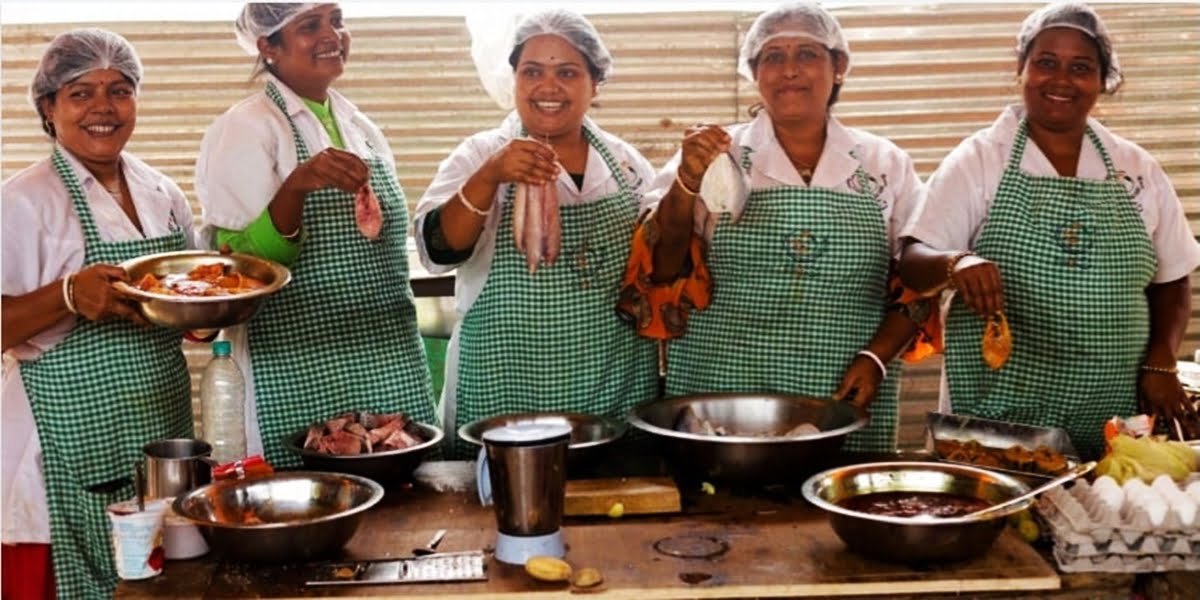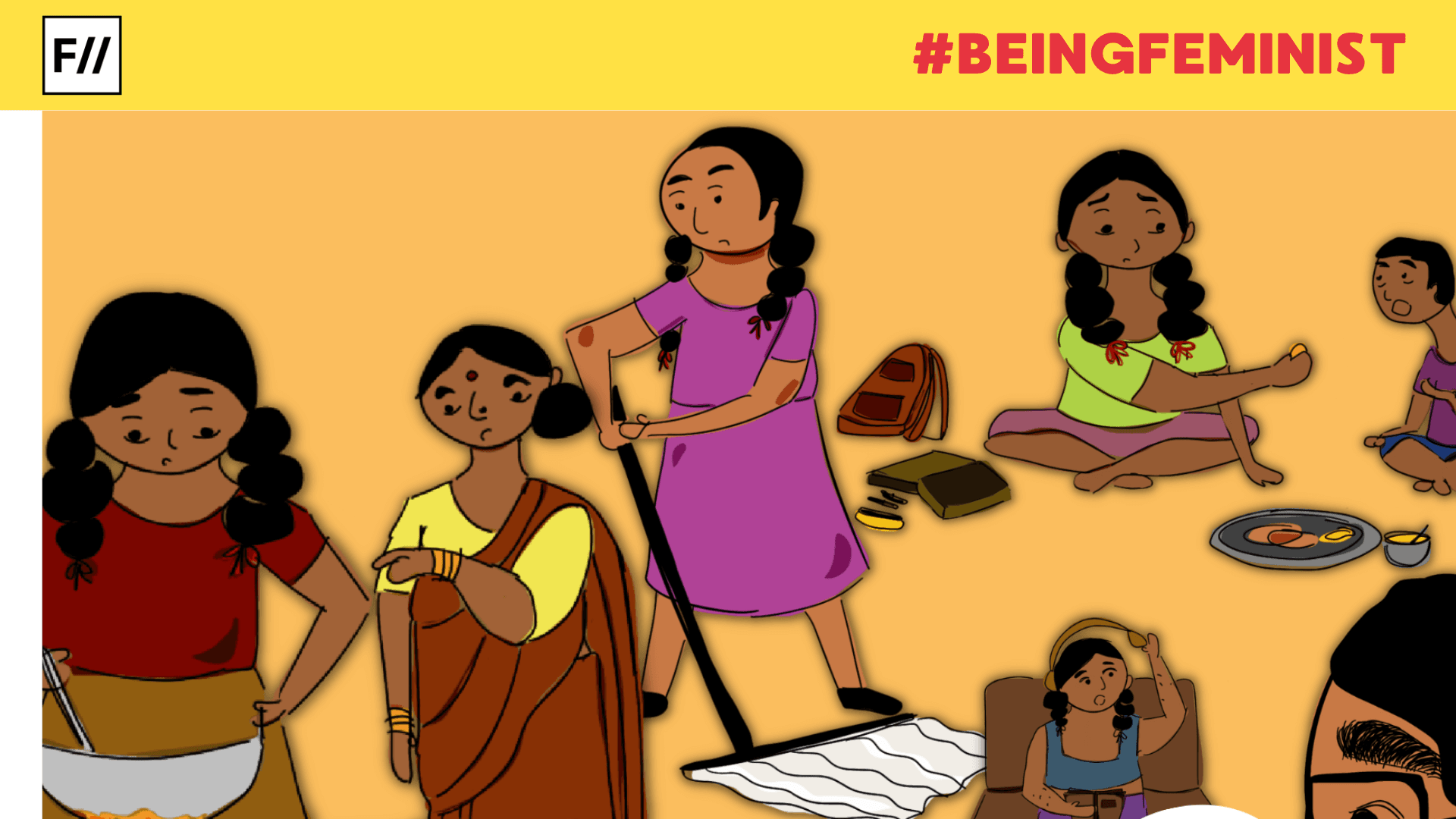India Food Court has been around for over half a decade now. The very first event saw participants from 11 states come together to celebrate India’s diverse and culturally-rich food tradition in Thiruvananthapuram in 2015. This year, the event, which started on February 26 will be around until March 14, and stalls from several states, serving traditional cuisines can be found.
The Aajeevika India Food Court is the result of a collaboration between the Malayalam news daily Mathrubhoomi, and Kudumbashree– Kerala’s successful SHG women empowerment model. The idea was to provide a singular platform that brings together the diverse food traditions of India in one place. This year, the event will see women’s groups comprising of first generational food-service entrepreneurs, of mostly rural backgrounds, participating.
The Aajeevika India Food Court is the result of a collaboration between the Malayalam news daily Mathrubhoomi, and Kudumbashree– Kerala’s successful SHG women empowerment model. The idea was to provide a singular platform that brings together the diverse food traditions of India in one place.
Also read: What Has The Feminist Movement Got To Do With Food?
With the theme Aajeevika India Food Court: ‘India on Your Plate’ this year, the event is a celebrated fusion of art, craft, tradition, culture, and food. Now an annual affair, it is jointly organised with Saras Melas and the Ministry of Rural Development. The event attracts more and more entrepreneurs each year and even more customers. It now witnesses the participation of representatives of nearly 15 to 20 states and Union Territories from across India.
What makes India Food Court stand out from other food festivals is the fact that this is where authentic, traditional cooking from all across India meets innovation; this results in an incredible selection of dishes, which, while remaining true to their traditional roots, also bring us current, familiar flavours. This intermingling of tradition and culture with innovation is what helps India Food Court combine India’s long, complex, and political food traditions with our ever-evolving, increasingly global culture and preferences.
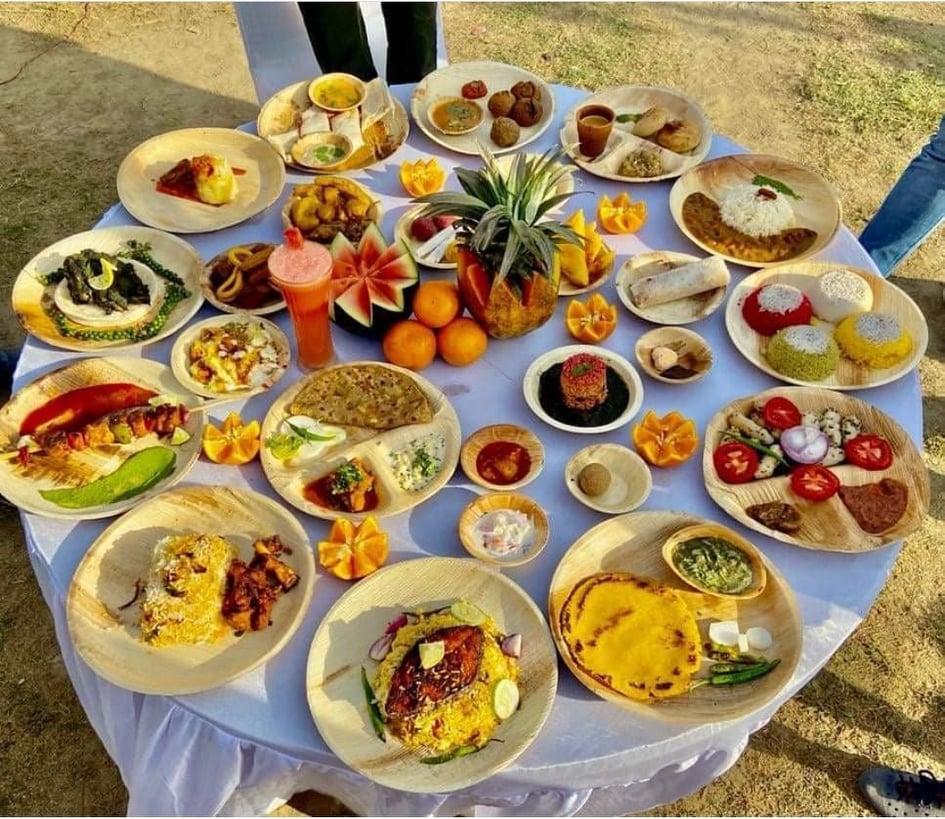
The perfect example of this meeting of two worlds can be found at the Assamese stall at India Food Court run by Deepjyoti and Tulkika, friends and mushroom farmers from Assam’s Kamrup district. Deepjyoti and Tulika are a part of a mushroom cooperative formed by 200 mushroom farmers in Assam. In the last iteration of India Food Court, held in 2019, the friends had an assortment of mushroom-based dishes at their stall. Dishes such as mushroom laddoos, mushroom pickle, pitha and murabba, and so much more. In 2018, under the aegis of the Assam State Rural Livelihood Mission, 25 Assamese women formed a group to become trained mushroom farmers. Ever since, Deepjyoti and Tulika have been attempting to incorporate mushrooms into traditional Assamese cuisine. They will represent Assam at the food festival this year as well, with a diverse selection of traditional Assamese dishes that contain some modern flavours.
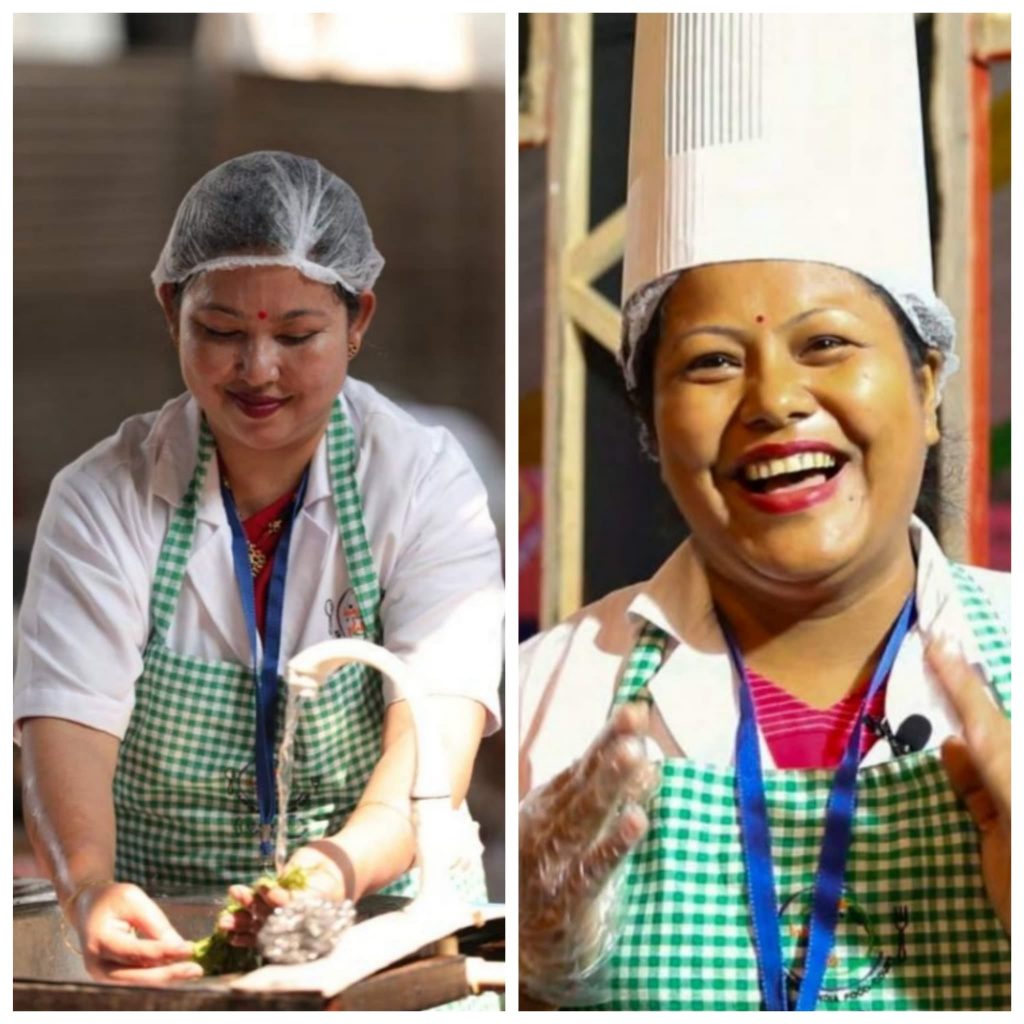
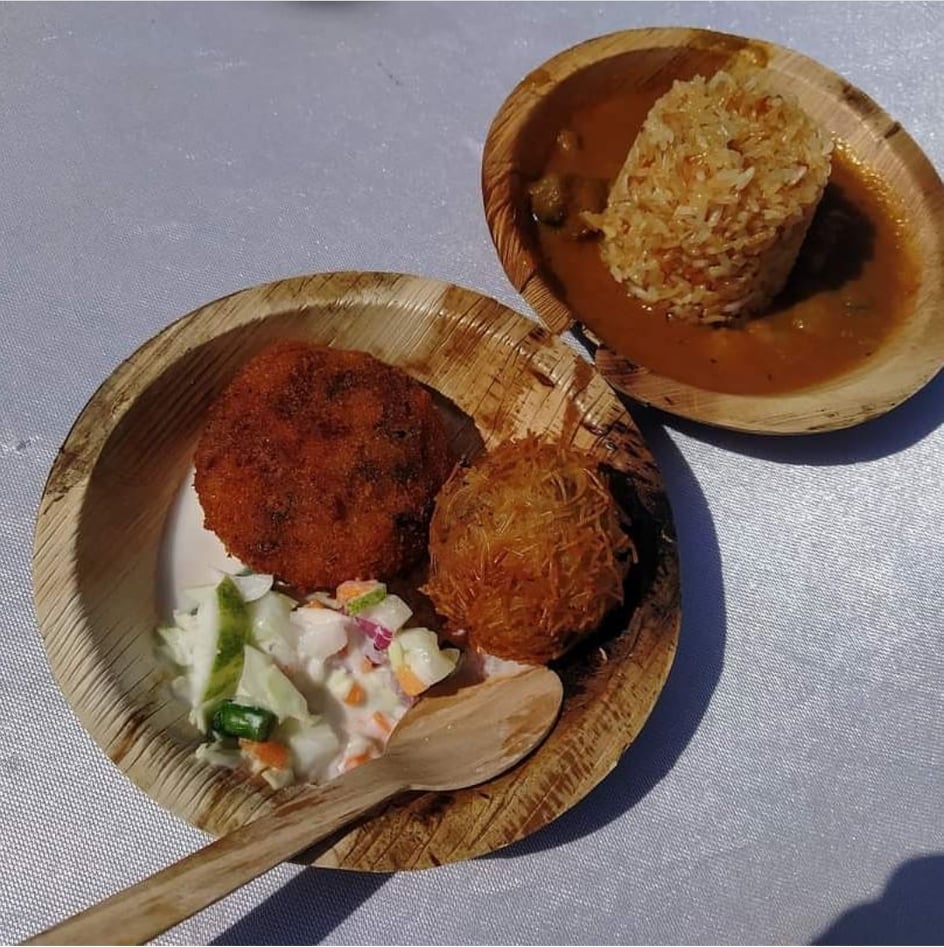
India Food Court also lays great emphasis on quality. Sanitation protocol is well-maintained, the ingredients are fresh, and the food is made in the safest and cleanest of environments. Not just that, some of the food is even organic, like some of the dishes you will be served at Amarjeet Kaur’s stall.
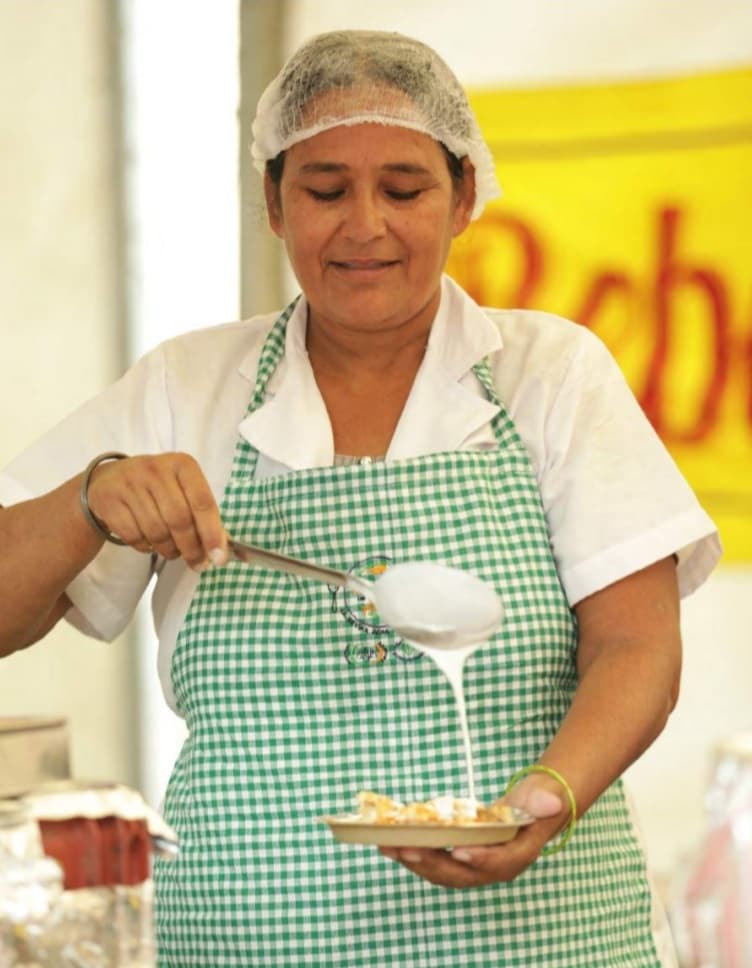
Representing Punjab at the India Food Court, Amarjeet’s Bebe di Rasoi uses organic ingredients for the most part. A farmer for many years, Amarjeet has been engaged in organic cultivation for the past fourteen years. Amarjeet also brought together the women of her village to grow organic vegetables in their backyards and exchange them with each other. In Amarjeet’s village of Bhotna, every woman now grows a specific vegetable. Amarjeet and the other women from her village have also been able to persuade 23 other villages in Barnala district to farm organically. She hopes to one day set up a food stall with 100 per cent organically sourced materials.
Also read: In Photos: The Dabbas Of Substance – A Field Food Diary
This initiative also helps women turn a traditionally domestic, unpaid activity into a source of financial security and economic empowerment.
This initiative also helps women turn a traditionally domestic, unpaid activity into a source of financial security and economic empowerment. At the bustling Rajasthani stall, where long lines form awaiting the Dal Baati Churma, Chandudevi works away tirelessly. A few years ago, Chandudevi realised that her everyday cooking and the regional delicacies she makes would possibly be sought after in droves outside of her village, this motivated her to enter the food business and set up food stalls at local events. Her foray into the food business with her authentic, traditional Rajasthani food has been a steady source of income for her and her family and has empowered her financially. All of this led her to the Aajeevika India Food Court 2019 and you’ll find Chandudevi and her much sought-after Dal Baati Churma at this iteration of the event, too.
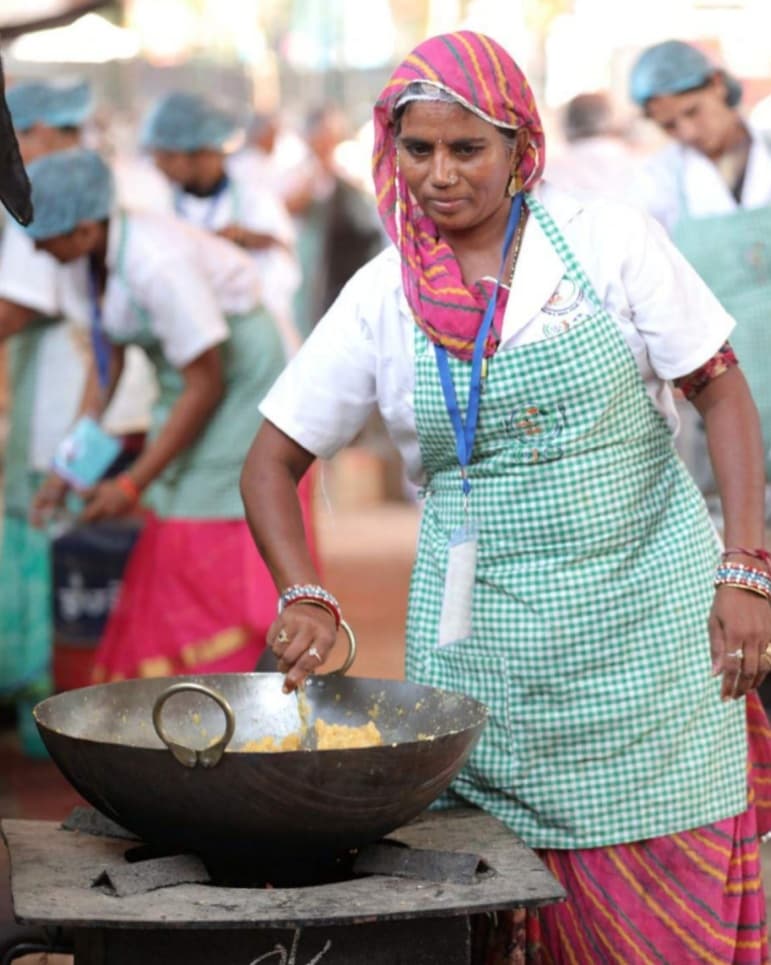
Deepjyoti and Tulika, Amarjeet Kaur, and Chandudevi’s stalls with their fusion, organic, and traditional foods, respectively, will be open to customers this year as well. Do visit them to try out some delicious Assamese, Punjabi, and Rajasthani food.
Head on over to Shilp Haat, Sector 33.A., Noida to relish India Food Court 2021’s incredible selection of foods from all over the country, and be a small part of India’s large, diverse, and celebrated food traditions that have a long history.
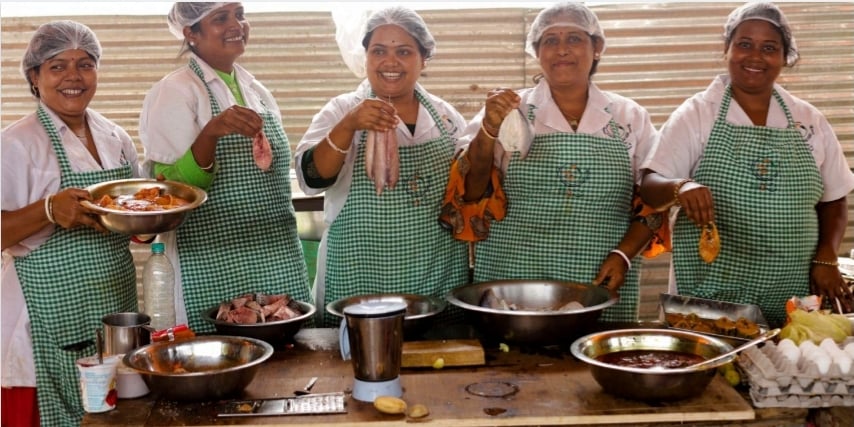
Come to think of it, while food definitely is about tradition, culture, and history, food is also political. What we think of as ‘good food’, has complex issues of race, caste, class, and culture behind it. What is generally seen as good and acceptable food, is often the food of the many and the privileged. Racial biases play out in how we conceptualise food and it is essential to be aware of these internalised prejudices. Food, especially in a country like India, has complex race, caste, religious, and political issues tied inextricably with it. Aajeevika India Food Court 2021 and its variety of dishes from all cultures of India, in addition to all else, also allows us a re-examination of our own politics of food.
All pictures as provided by Aajeevika India Food Court organisers.
About the author(s)
